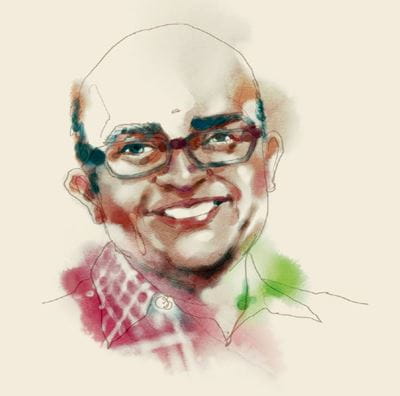
Special effects artist-turned-entrepreneur Vishnu Swaminathan, who now supports innovative social entrepreneurs for his work, gives his take on building social entrepreneurship in Singapore.
BY WONG SIOW YUEN
ILLUSTRATION KEN LEE
ishnu Swaminathan has charted an interesting career path since his first job as a 3-D and film special effects artist. He has worked in project management, founded two businesses, headed a leadership school and helped on a project to nurture grassroots innovation across India.
Now, the entrepreneur is based in Bangalore where he leads Ashoka South Asia and Ashoka India. Ashoka is a global organisation that supports social entrepreneurs with groundbreaking ideas on how to solve complex social problems on a large scale.
His business acumen was honed in Singapore from 1997 to 2005, during which he started two IT solutions businesses, from which he holds two patents. One was an online payment application, which was later acquired by a Malaysian company.
The other was an animation technology company, which has since wound down.
He cites Singapore’s best practices in business regulation – transparent tax laws and protection of intellectual property rights – as reasons why it is one of the best places to be an entrepreneur.
After eight years in Singapore, Swaminathan returned to India, where his work revolves around social entrepreneurship.
Unlike business entrepreneurs whose main focus is on generating profits, social entrepreneurs act as change agents for society and tackle its most pressing social problems with innovative solutions.
One of his roles at Ashoka is in identifying Ashoka Fellows – leading social entrepreneurs with the potential to change patterns across society.
They are meticulously chosen with the help of a global nominator network and are evaluated against a strict selection criteria.
They undergo a series of interviews and meet a judging panel before the executive board votes to decide.
Those selected receive a three-year stipend to fully dedicate themselves to their new ideas and gain access to an expert network of social entrepreneurs.
It is this relentless, creative spirit that he hopes to see more of.
Singapore’s 50th anniversary is an opportune time to think about how social entrepreneurship can be encouraged, he says, but Singaporeans have a lot to learn when it comes to being accepting of chaos.
He adds: “They don’t know how to deal with disorganisation. I picked this up in my time in Singapore so much so that when I returned to India, even I was initially afraid of chaos.
Traffic in India is not bound by rules so I was very cautious in my driving and afraid to honk. It would take me 45 minutes to travel 6km, even when there was no traffic congestion.’’
He identifies young Singaporeans as a core group that can encourage change. He says: “They are a more involved generation and this is a huge opportunity for them to take charge to drive change.”
